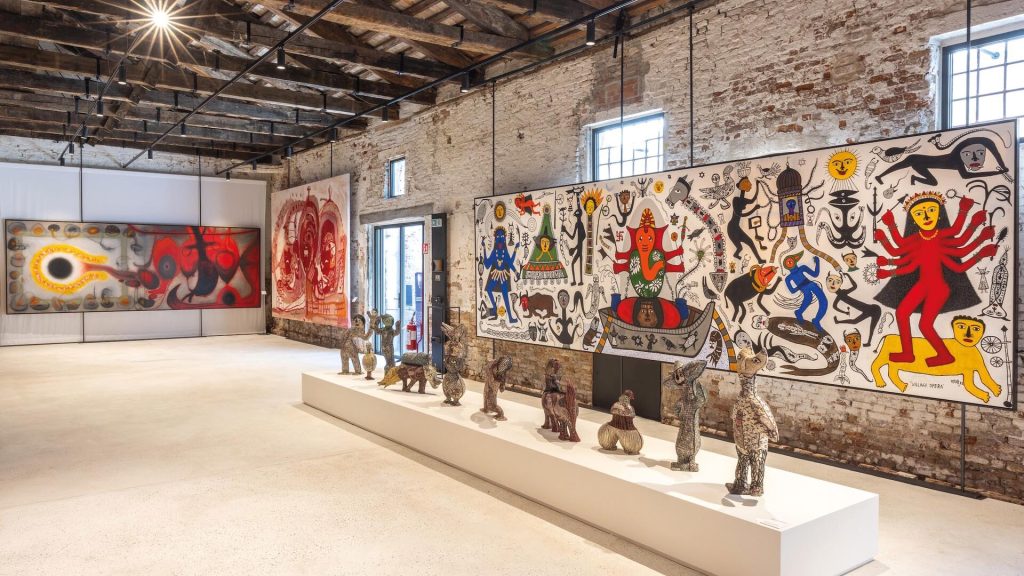
At the Salone Verde in Calle della Regina, the works of Indian artists Madhvi Parekh and Manu Parekh, along with the embroideries created by the Chanakya School of Craft in Mumbai, engage in a dialogue in support of women’s emancipation.
The works of Indian artists Madhvi Parekh and Manu Parekh engage in a dialogue with the embroideries created by the Chanakya School of Craft in Mumbai, a non-profit institution dedicated to promoting women’s social emancipation through craftsmanship. Since its founding in 2016, the school has taught more than a thousand women of all ages and socio-economic backgrounds, forming a strong community of experts. The two artists celebrate traditional Indian myths, where the spiritual dimension is a powerful catalyst for imagination and creativity. Similarly, the works created by the craft institute, under the artistic direction of its founder, Karishma Swali, go beyond the conventional boundaries of applied arts to create an original artistic language rooted in India’s rich cultural history.
Curated by Maria Alicata and Paola Ugolini and supported by Dior, the exhibition stems from an exchange between the artists and artisans initiated during the presentation of Dior’s Spring/Summer 2022 Haute Couture collection at the Musée Rodin in Paris. With the support of Maria Grazia Chiuri, creative director of Dior’s women’s collections, the Chanakya School of Craft has become a key partner in the conception and production of artworks and installations accompanying some of Dior’s most recent runways. For this exhibition in Venice, some of Manu and Madhvi Parekh’s works have been reinterpreted and recreated by Karishma and the artisans using more than 300 different ancient Indian embroidery techniques.
More than a mere translation from painting and sculpture to embroidery – a profession that until recently in India was reserved for men – these monumental works are born from an authentic collaboration between generations, genders, and roles. This dialogic practice reflects on the universal value of creativity, particularly manual practices. By inviting critical reflection on the reciprocal relationship between women and embroidery, as well as the enormous creative potential of hand embroidery when it crosses domestic boundaries into the public sphere, the works of the Chanakya School transcend the conventional terms of craftsmanship to shape a new artistic language rooted in collective cultural histories.